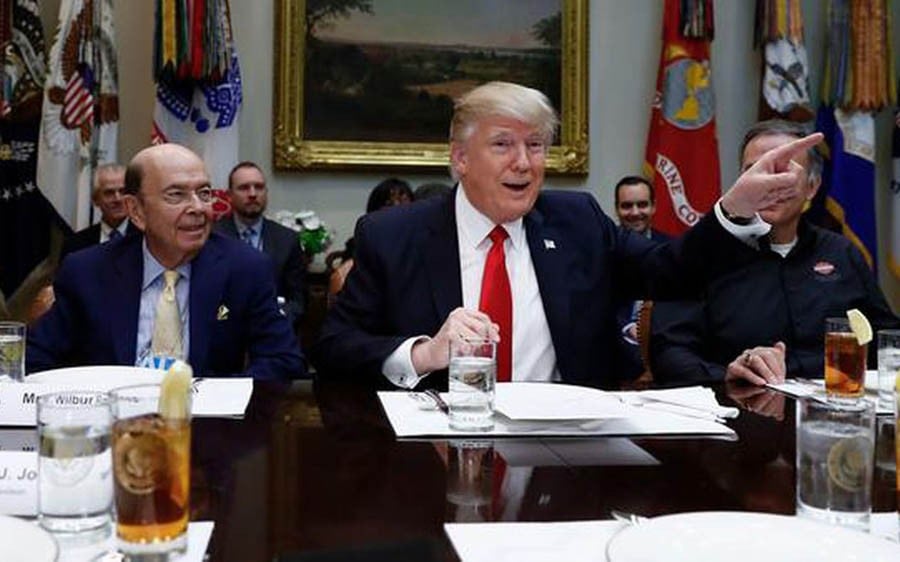
Pakistan would come under renewed pressure from the Saudis not to offer any help to Tehran while Iran would expect Pakistan to at least remain neutral

Pakistan has managed a delicate balancing act in its relations with its neighbour Iran and old friend Saudi Arabia, but this difficult task would become even more challenging in the wake of the recent decision by President Donald Trump to scrap the nuclear deal with Tehran and reimpose sanctions on the Iranian government.
Though the move by the Trump administration was expected, its implications would remain unpredictable considering the fact that many countries and companies would be affected when the sanctions are reinstated in three to six months. Trump’s unpredictable nature is another factor that ought to be kept in view, though his unrivalled support for Israel has never been in doubt and was evident both by his decision to scrap the Iran nuclear deal so that the Jewish state remains the only nuclear power in the Middle East and also by his provocative move to shift the US embassy from Tel Aviv to Jerusalem. His decision-making is the outcome of both his election campaign promises and his arrogance. It won’t be surprising if these US decisions contribute to the rise in anti-America sentiments in Pakistan and make it even more difficult for the government to compromise on its interest vis-à-vis Washington.
As Saudi Arabia, along with Israel, have supported Trump’s decision to unilaterally end the nuclear deal with Iran and re-sanction the Iranian government, Pakistan would come under renewed pressure from the Saudis not to offer any help to Tehran.
The Iranians, on the other, would expect Islamabad to at least remain neutral if not supportive of Iran in the Riyadh-Tehran tussle as it has deftly done all these years. The wise resolution of the Parliament in 2015 that advised the PML-N government not to become involved in the Saudi Arabia-led military intervention in Yemen should serve Pakistan well in such complex situations as the democratically elected lawmakers who made this decision represented the aspirations of the Pakistani nation and violating it would be both undemocratic and imprudent.
By allowing former Army chief retired General Raheel Sharif to take command of the still non-existent, Saudi-led Islamic anti-terrorism force, Pakistan has already given a cause of concern to Iran. However, Tehran shouldn’t be unduly worried about it as such a force even if it is eventually raised through contributions by Islamic countries is unlikely to indulge in hostilities against Iran or intervene in any country.
In view of the escalating tension between Iran and Saudi Arabia on account of their bitter battle for supremacy in the Middle East and the sectarian nature of their conflict, Pakistan cannot afford to take sides in this situation. The challenges for Islamabad are also getting complicated owing to its deteriorating relations with the US and the latter’s growing closeness to Saudi Arabia and animosity towards Iran. Also, Islamabad has to guard against any proxy sectarian strife that Riyadh, with backing from the US, and Tehran could sponsor in Pakistan. The Saudis may have their own reasons for closely aligning with the US, but for Pakistan the New Delhi-Washington alliance is a major cause of concern.
There would be other consequences for Pakistan also of Trump’s move to scrap the Iran nuclear deal. The Iran-Pakistan gas pipeline was already on hold much to Tehran’s annoyance with Islamabad for failing to abide by the bilateral agreement, but the re-imposition of sanctions against Iran would temporarily bring work to an end on the project. Instead, the US and its allies would focus attention on the much-delayed Turkmenistan-Afghanistan-Pakistan-India (TAPI) gas supply project and ensure that it moves forward in place of the Iran-Pakistan pipeline.
There has been suggestions that re-imposition of economic sanctions on Iran would delay work on the India-funded Chabahar seaport project in Iran and indirectly benefit the China-sponsored Gwadar port to emerge under the China-Pakistan Economic Corridor (CPEC) as a leading destination on the Arabian Sea for imports and exports not only from Pakistan and China, but also from Afghanistan and the Central Asian countries. It remains to be seen if Chabahar and Gwadar are really competitors or are capable of becoming busy seaports at a time when other nearby ports are still able to handle bulk of the sea trade in the region.
Iran has managed to survive the sanctions regime in the past as well and it would do so in future also. The US, UK and others were accused by Iran in the past also of assisting anti-Iran militant groups such as Mujahideen-i-Khalq and the Sunni-based Jundullah and Jaish al-Adl, but this couldn’t topple the Ayatollah-led Iranian government. However, Pakistan has to ensure that its soil isn’t used by any militant group to undertake attacks in Iran because this has always been a sore point in Iran-Pakistan relations and a cause of complaint for Iran.
On a positive note in the new situation, Iran and Pakistan would be tempted to coordinate their policy options in Afghanistan in view of the common threat from the US and take steps to end the Afghan conflict as both stand to suffer if their war-ravaged neighbouring country remains at war.